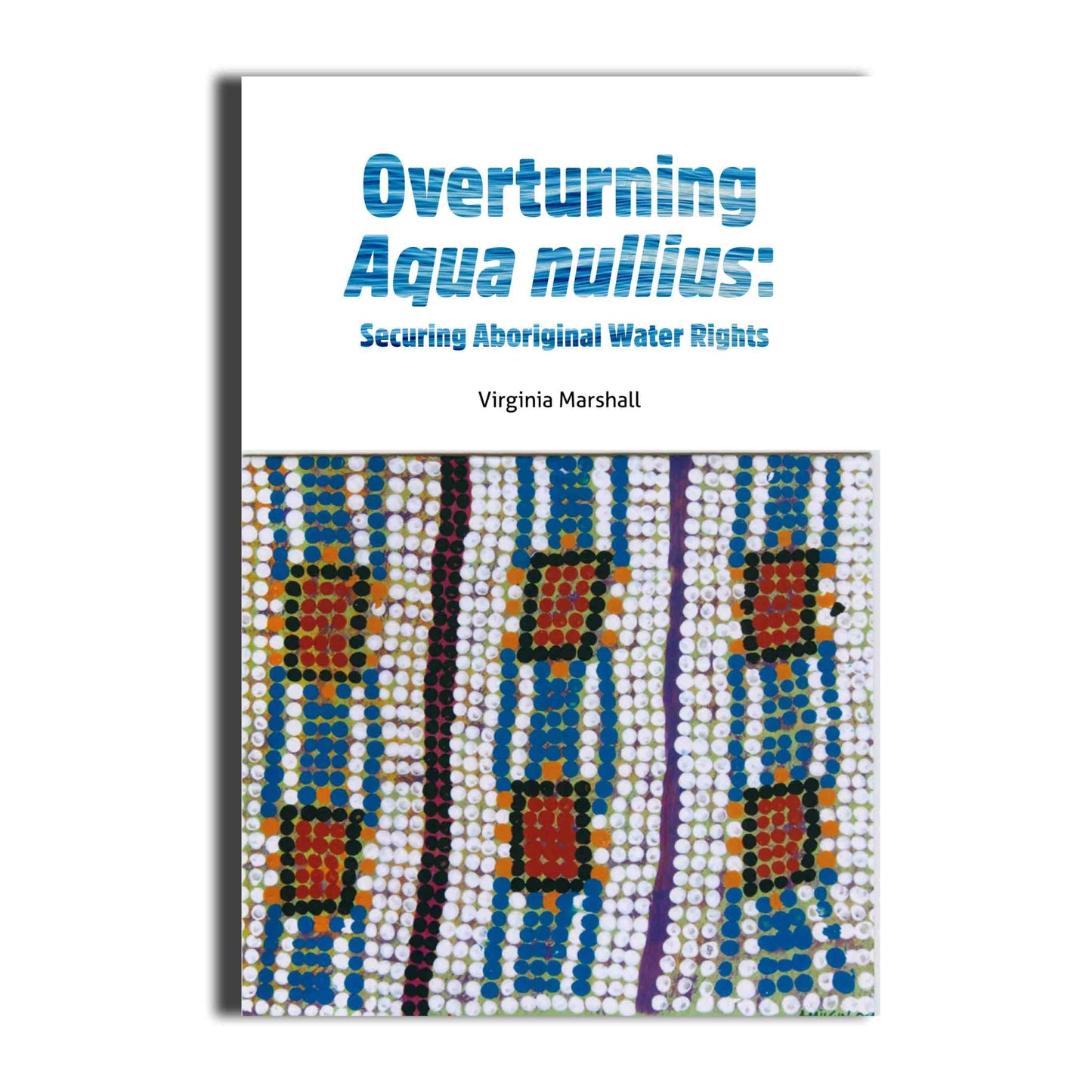Overturning Aqua nullius
Overturning Aqua nullius
AIATSIS
Couldn't load pickup availability
Winner of the Stanner Award, 2015
Aboriginal peoples in Australia have the oldest living cultures in the world. From 1788 the British colonisation of Australia marginalised Aboriginal communities from land and water
resources and their traditional rights and interests. More recently, the national water reforms further disenfranchised Aboriginal communities from their property rights in water, continuing to embed severe disadvantage.
Overturning aqua nullius aims to cultivate a new understanding of Aboriginal water rights and interests in the context of Aboriginal water concepts and water policy development in Australia.
In this award-winning work, Dr Marshall argues that Aboriginal water rights require legal recognition as property rights, and that water access and water infrastructure are integral to successful economic enterprise in Aboriginal communities. Aboriginal peoples' social, cultural and economic certainty rests on their right to control and manage customary water.
Drawing on the United Nations Declaration on the Rights of Indigenous Peoples, Marshall argues that the reservation of Aboriginal water rights needs to be prioritised above the water rights and interests of other groups. It is only then that we can sweep away the injustice of aqua nullius and provide the first Australians with full recognition and status of their water rights and interests.
Production Details
- Paperback
- 235mm x 155mm x 20mm
- 328pp
- Released February 2017
- ISBN 9781922059093
Contents
Foreword
List of acronyms and abbreviations
Preface
About the author
Acknowledgments
Dedication
Part A: The interconnected waterscape
Chapter 1: Introduction — the web of water rights
Chapter 2: ‘We belong to water’ — Aboriginal identity and cultural authority
Chapter 3: Aboriginal property and Western values — concepts of ownership
Chapter 4: Health, wealth and water rights
Chapter 5: ‘Little more than a sense of justice’: Mabo and native title
PART B: Trading water — the disconnect in water values
Chapter 6: Polarised paradigms — Western and Aboriginal conceptions
Chapter 7: ‘A fluid element’ — water in Australian policy
Chapter 8: The Murray-Darling Basin and the Commonwealth Water Act
Chapter 9: Water Rights — for economic independence
Chapter 10: Aboriginal water values in Australian policy and law
Chapter 11: Human Rights — incorporating Aboriginal water rights
PART C: A paradigm shift for Aboriginal water rights
Conclusion — Securing Aboriginal water rights
Bibliography
Notes
Index
About The Author
Virginia Marshall is a Wiradjuri Nyemba woman from New South Wales and a leading legal scholar on Aboriginal water rights in Australia. Her seminal 2017 book Overturning Aqua Nullius includes a foreword by Michael Kirby. Virginia is the Inaugural Indigenous Postdoctoral Fellow at Australian National University, attached to the School of Regulation and Global Governance and the Fenner School of Environment and Society, and lectures at various Australian National University (ANU) schools, including the ANU College of Law. She is a practicing lawyer working in native title and intellectual property.
Virginia’s academic work lies at the intersection of law, regulation and science, with a focus on Indigenous water rights and the impact of climate change on Indigenous peoples. Her postdoctoral research includes a comparative analysis of Indigenous water rights to inform development of an Indigenous water rights framework for Australia, and research on compliance with access and benefit sharing in relation to traditional knowledge and genetic resources.
Virginia is a member of the ANU Ethics Committee, the Climate Change Institute and the Sir Roland Wilson Foundation Pat Turner Scholarship Advisory Group. She is on Intellectual Property Australia’s Expert Reference Group into intellectual property system reforms, and is an expert advisor and champion with the Indigenous Peoples Organisation (Australia).
About The Cover
Front cover: Annie Milgin 'Water Dreaming'
Cover design: Sprout Design




